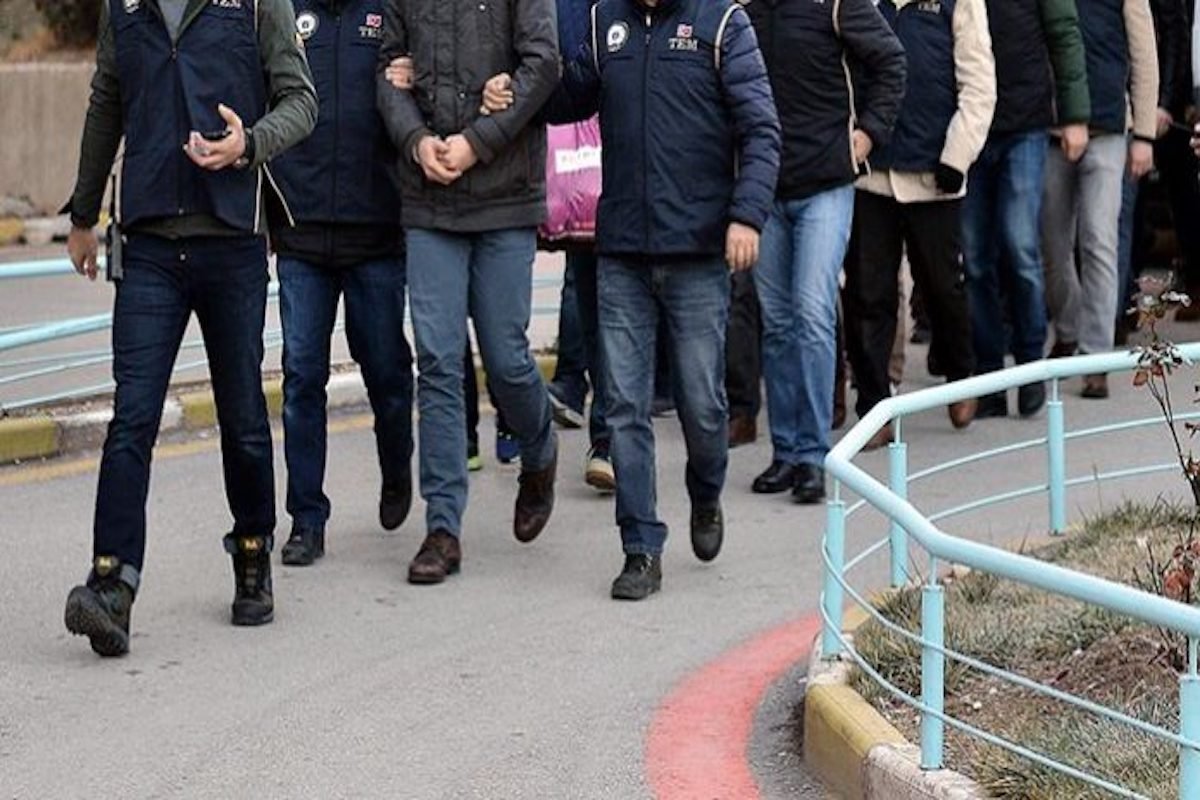Turkish government has issued detention warrants for 67 union executives and dozens of military officers as part of its massive post-coup witch hunt campaign targeting the alleged members of the Gülen movement on Thursday.
The Ankara Chief Prosecutor’s Office on Thursday issued detention warrants for 67 members of Aksiyon-İş, a union confederation which was closed by government following a controversial coup attempt on July 15, 2016, over alleged links to the faith-based Gülen movement, the state-run Anadolu news agency reported.
According to the report, 67 people were executives of 7 unions under the umbrella of Aksiyon-İş. Thirty-three of 67 have been detained in operations in 12 provinces while 34 are still at large.
Meanwhile, the Konya Chief Prosecutor’s Office has issued detention warrants for 70 military personnel of various ranks as part of a witch-hunt targeting people claimed to have links to the Gülen movement, the state-run Anadolu news agency reported on Thursday. According to the report, 40 of 70 military officers have been detained in operations in 27 provinces.
It was also reported that 58 of 70 are active-duty military personnels while 12 were dismissed as part of purge launched by the government following the controversial coup attempt on July 15, 2016. Thirty military pesonnels are still at large.
Fourteen soldiers were also arrested in a simultaneous operation in 9 different provinces as part of a probe launched by northeastern Bayburt Chief Prosecutor’s Office against the alleged members of the Gülen movement. Separately, 14 people, including on-duty soldiers and police were arrested in eastern Van province over their allege links to the movement.
In northwestern Kocaeli province, 17 people, including a number of former military officers were also detained. A prosecutor’s office in Kocaeli also issued an arrest warrant for 26 military officers, including five dismissed, a retired and 20 on-duty military officers.
Moreover, pro-government Yeni Şafak daily has reported that the Turkish Armed Dorces are to re-examine the file of every single employee for signs that they might be secret members of the Gülen movement. “The schools, families, places served and commanders of soldiers of every rank will be examined one by one, and if the slightest hint of FETÖ is found they will be suspended,” the newspaper said.
“FETÖ” is a pejorative acronym that Turkey’s political Islamist government has been using to defame the Gülen movement.
The ruling Justice and Development Party (AKP) government dismissed a total of 24,977 military personnel including over 150 generals, 4,630 officers, 2,167 noncommissioned officers, 1,210 specialized sergeants, 411 civil servants and workers, and 16,409 cadets following the controversial coup attempt over their claimed links to the Gülen movement.
The government has up until now employed a total of 15,850 military personnel including 1,763 officers, 4,135 noncommissioned officers, 3,698 specialized sergeants, 6,162 contracted privates and 92 civil servants.
Turkish government has announced on Jan. 2 that it will enlist 42,938 new military personnel including 3,755 officers, 5,375 noncommissioned officers, 13,213 specialized sergeants and 20,595 contracted privates are planned to fill the ranks.
In February 2017, Defense Minister Fikri Işık said 30,000 new recruits would be enlisted in the Turkish military. However, official statements claim that a total of 8,651 military members including cadets and privates took part in the coup attempt.
Turkey’s Director General of Public Security Selami Altınok on Dec. 12, 2017 said 22,987 police officers have been dismissed over alleged links to the faith-based Gülen movement.
“If it was a coup perpetrated by the Gülen movement and 25,000 military personnel and 22,987 police officers were dismissed for their connections to the movement, why did only 8,651 military members including cadets and privates participate in the coup?” is a question being asked by critics.
The government has been at the center of criticism for turning the Turkish forces into a political Islamist military in line with the wishes of autocratic Islamist President Recep Tayyip Erdoğan.
A military officer candidate was reportedly asked questions about the Quran and the anti-government Gezi protests of 2013 during an interview in October 2017. Also, in June 2017, an imam-hatip, or religious high school, in İzmir province promised its graduates preference in enrollment at military and police academies. Some find the Turkish government’s efforts to Islamicize the Turkish army alarming and warn that NATO risks having a member army filled with extremists.
In February Henri Barkey, director of the Middle East Program at the Washington-based Wilson Center, said that many generals purged by the Turkish government are pro-NATO and pro-American, saying this could create a shift in Turkey-NATO relations.
Fethullah Gülen, who inspired the movement, strongly denied having any role in the failed coup and called for an international investigation into it, but President Erdoğan — calling the coup attempt “a gift from God” — and the government initiated a widespread purge aimed at cleansing sympathizers of the movement from within state institutions, dehumanizing its popular figures and putting them in custody.
A total of 62,895 people were detained in 2017 as part of witch-hunt targeting the Gülen movement.
Turkish Interior Minister Süleyman Soylu said on Dec. 12, 2017 that 55,665 people have been jailed and 234,419 passports have been revoked as part of investigations into the movement since the failed coup attempt on July 15, 2016. Minister Soylu on Nov. 16 had said eight holdings and 1,020 companies seized as part of operations against the movement.
The Justice Ministry announced on July 13, 2017 that 169,013 people have been the subject of legal proceedings on coup charges since the failed coup. Turkey has suspended or dismissed more than 150,000 judges, teachers, police and civil servants since July 15, 2016 through government decrees issued as part of an ongoing state of emergency.
According to Ministry of Justice data, there are currently 384 prisons with a capacity of 207,279 in Turkey; however, the total number of inmates was 228,983 as of October 2017. The Ministry of Justice plans to build 228 new prisons with a capacity of 137,687 in the next five years. (SCF with turkishminute.com)
















